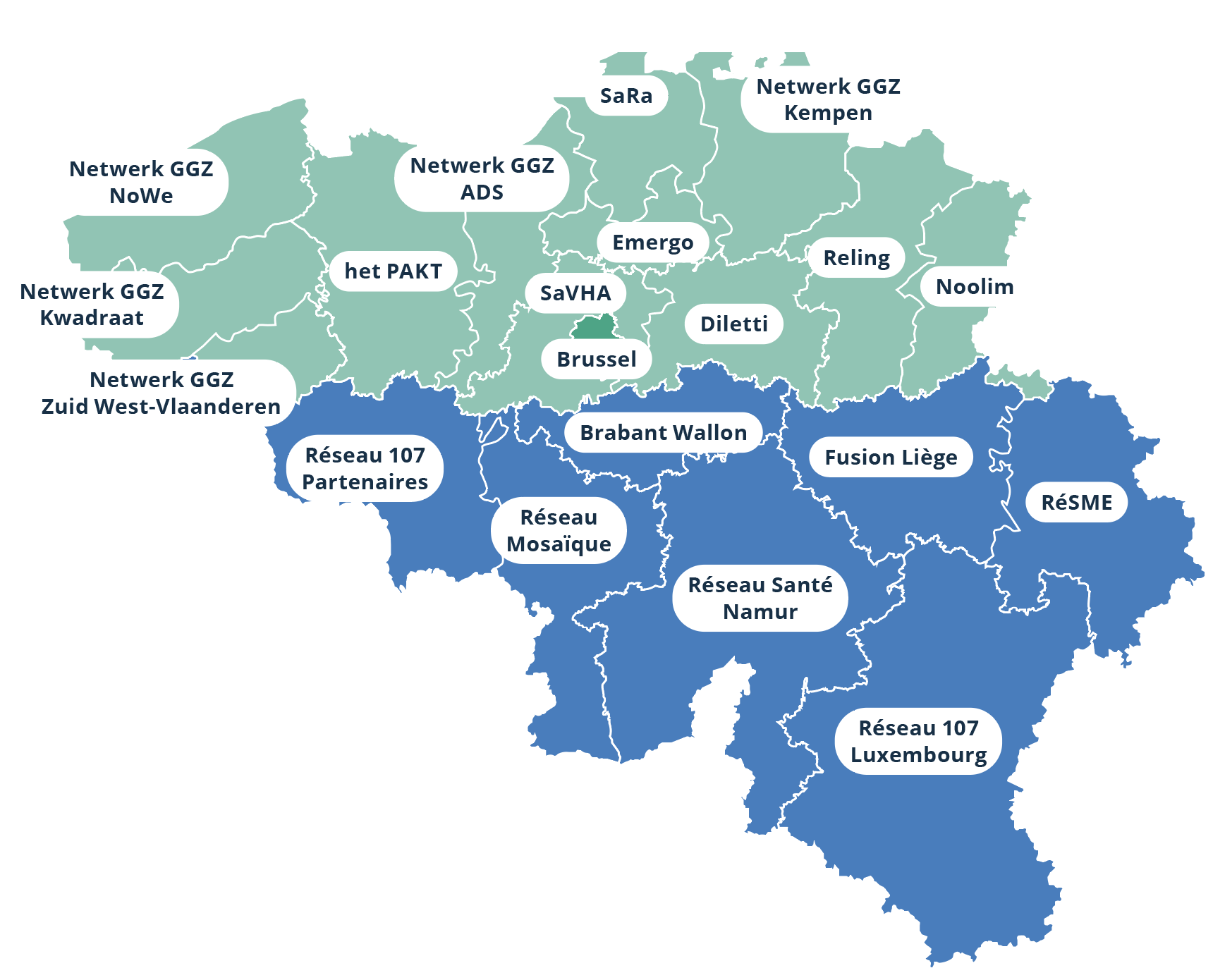With the signing of the ‘Guide to Improved Mental Health Care through the Realisation of Care Circles and Care Networks’ by all competent Ministers, the Interministerial Conference (IMC) Public Health kicked off the reform of adult mental healthcare in 2010[1]. Various pilot projects were launched in which mental healthcare networks (MHC networks) were set up and systematically expanded. An evaluation was carried out in 2017 and a number of networks were redesigned, which left 20 MHC networks for adults. Currently, every Belgian municipality is part of one of the 20 MHC networks.

A policy for working towards a more community-based mental health care was deliberately chosen because it can be seen that home-based care, possibly combined with short intensive residential care, leads to better outcomes for patients and their families. What follows highlights some topics for which the federal government has jurisdiction, whereby we analyse the offer and activity in PH, PDGH, and in relation to internment. Finally, the nature of treatments in the context of substance abuse is discussed.
Learn more? www.psy107.be
[1] It has already been stated that the care offering for the elderly should be a continuation of the reform for adults and consequently be expressly chosen to be an addendum/an update guide 2.0 to the already existing guide for adults so that it is responsive for all adults.